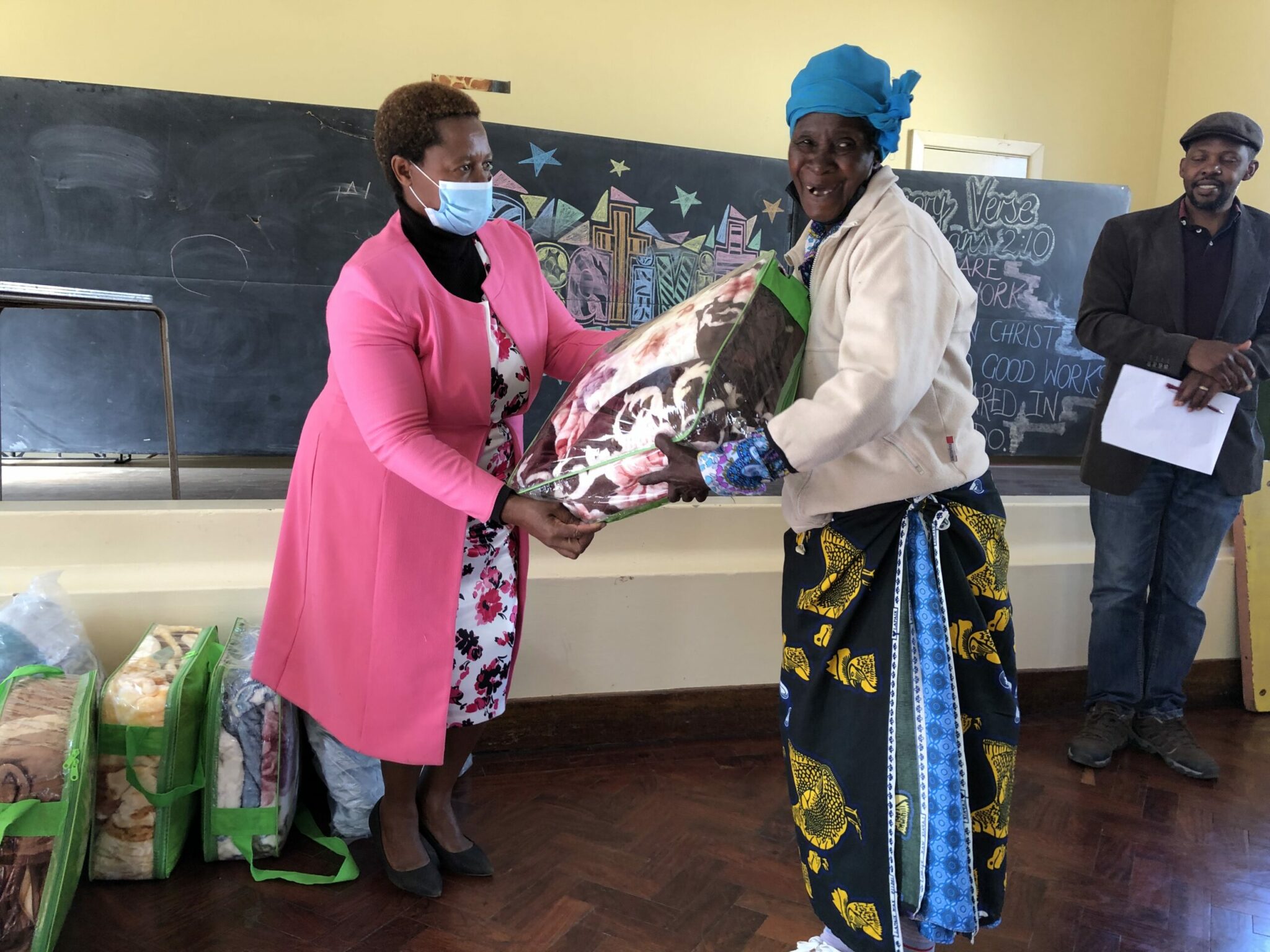Former ZPRA female cadres have lamented that their war exploits are not documented despite their ‘heroic’ sacrifices to free the country from colonial rule.
These sentiments came out when the female veterans received a consignment of blankets purchased by a network of children of ZAPU and ZPRA members on Thursday in Bulawayo.
During the handover, the female veterans narrated their experiences and harrowing tales of what they witnessed during the struggle.
One of the beneficiaries was widow to the ex-ZPRA commander, Nikita Mangena, Sikhubekiso, who endured the terror of colonial rule alongside her husband.
For some time, it was assumed Mangena had died after independence.
Grace Noko, a veteran who served in Mgagao, broke down when she said that no one knew about the history of most female fighters who died while fighting.
“We won’t hear of them and we won’t ever know them. Those women died when we were still young and before we knew that we had to document each other during the war,” she said.
“Instead of suckling their children, women suckled AK47 rifles. Rivers that flowed were filled with blood shed by these women but today it’s as if that didn’t happen. Zimbabwe is here today but we are not thankful yet you must be thanking us while we are alive. One day, we hope our history will be revealed.”
One of the female ZPRA commanders, Thoriso Ncube, noted it was about time their history was documented.
“We are now old and that’s why young people have to come to us so we tell you what happened and also guide you. For this country to be here, we believed in values but those values have been abandoned. That’s why the country is in this state and we are going to die leaving it like this,” she lamented.
Ncube said despite her advanced age, she was still struggling for a better Zimbabwe.
“I went to war but have not seen a better country. I am tired and should be playing with my grandchildren but I don’t have that time. It’s painful that we still have to struggle. No one is independent here and you say Zimbabwe is independent, no!” she exclaimed.
“I experienced life in the war. I slept alongside snakes and lions, hiding under sand dunes to liberate my country but the struggle continues. Unlike some of you who went to university to get degrees, the number of bullets I shot are my degrees.”
Another veteran, Sithembile Ndlovu, known as Mahalimana, disclosed that Mafela Trust had registers of some veterans, including their nom de guerre, who had participated in the struggle.
“I worked at Mafela Trust with the late Zephaniah Nkomo to document our history which was lost especially after Independence. We don’t know what the government did but our war records have been lost. So at Mafela Trust we have been documenting some of our fallen heroes,” she said.
“We have done what we can to document who died where and when. We have those registers, with their real names and their nom de guerres. If you are looking for them you can come to Mafela Trust, as long as you have a name. Over the years we have been documenting that without resources but we did it.”
Ndlovu noted that although Nkomo had died, the preservation of history continued.
“We need the young to tap into this history and continue the legacy because we are now old and may die any time,” she said, noting that she went to war in 1978.
“I worked in Nairobi, trained in secretarial services and also worked in Zambia. When I returned to the country I worked in Harare, we were at the forefront of campaigning for independence in 1980.”
A member of the Children of ZAPU/ZPRA network, Qobo Mayisa, who had organised the donation, said the preservation of history was crucial for future generations.
“We recently received a request from one veteran’s child in Gokwe whose father had been stationed there in 1978. He didn’t know his father but his mother had told him his father’s war name and details. That child made a video looking for his father and said his nom de guerre was London. After the circulation of that video, we asked our parents and it so happened that his father’s young brother said they in fact had been looking for him as well,” he said.
“Unfortunately, his father had died days ago and was yet to be buried. We rushed to locate him and went to collect him from Gokwe so he could bury his father. This is an example of the importance of recording history.”
Capturing the history of the veterans and the struggle was part of the objectives of the network of ZAPU/ZPRA children, Mayisa indicated.


There is a book which was recently published, written by Methembe Hadebe. The book is titled Yithi Laba and chronicles experiences of female ZPRA combatants.
Their importance in the struggle for an independent Zimbabwe can never be undermined.